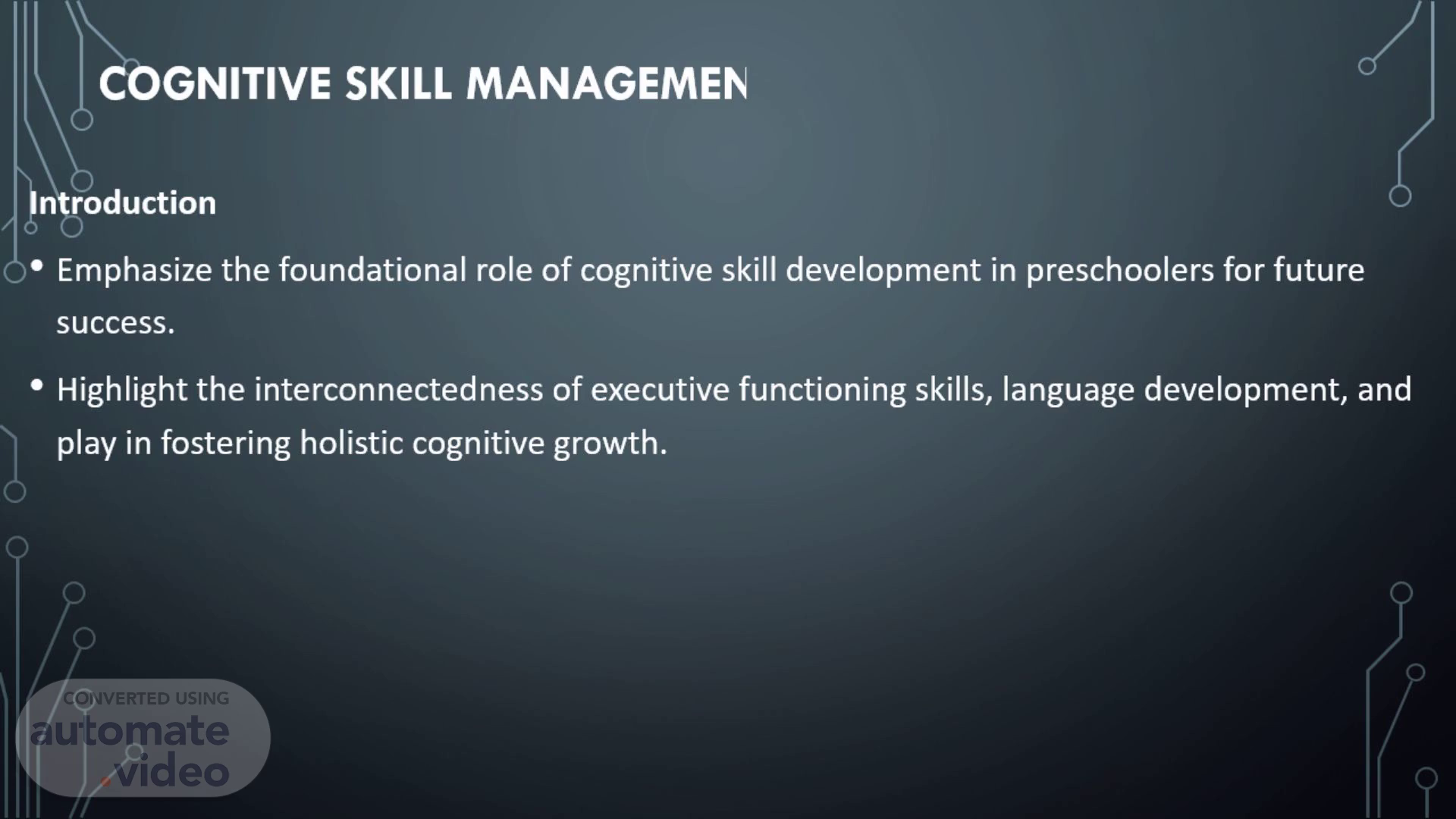
Page 1 (0s)
Cognitive skill management for preschool children.
Page 2 (13s)
Executive Functioning Skills. Definition and Explanation: Executive functioning skills encompass working memory, self-control, and cognitive flexibility. Importance: Critical for school readiness and overall success. Enables following instructions, managing emotions, and adapting to new situations. Practical Strategies: Incorporate memory games to enhance working memory. Teach mindfulness techniques for self-control. Encourage activities that require flexibility in thinking..
Page 3 (33s)
Language Development. Critical Role: Language development is fundamental for effective communication, literacy, and cognitive growth. Components of Language Development: Vocabulary development: Learning new words. Language comprehension: Understanding spoken language. Expressive language skills: Communicating thoughts and feelings. Practical Activities: Read books together to enhance vocabulary. Engage in conversations to develop language comprehension. Use play-based activities like storytelling for expressive language skills..
Page 4 (53s)
Play-Based Learning. The Power of Play: Play is a natural and effective way for cognitive development in preschoolers. Types of Play: Imaginative play: Role-playing and pretend play. Constructive play: Building with blocks or other materials. Games with rules: Promoting self-control and following instructions. Examples of Play-Based Activities: Building with blocks enhances spatial reasoning and problem-solving. Pretend play supports social and emotional development. Games with rules develop self-control and adherence to instructions..
Page 5 (1m 17s)
Nurturing Young Minds: A Holistic Approach. Executive Functioning Skills: Crucial for school readiness and lifelong success. Enhance working memory, self-control, and cognitive flexibility. Practical strategies: Memory games, mindfulness, and activities promoting flexibility. Language Development: Fundamental for effective communication and literacy. Components: Vocabulary development, language comprehension, expressive language. Practical activities: Reading, conversation, and play-based language activities. Play-Based Learning: A powerful tool for cognitive development. Types: Imaginative play, constructive play, games with rules. Examples: Building with blocks, pretend play, rule-based games..